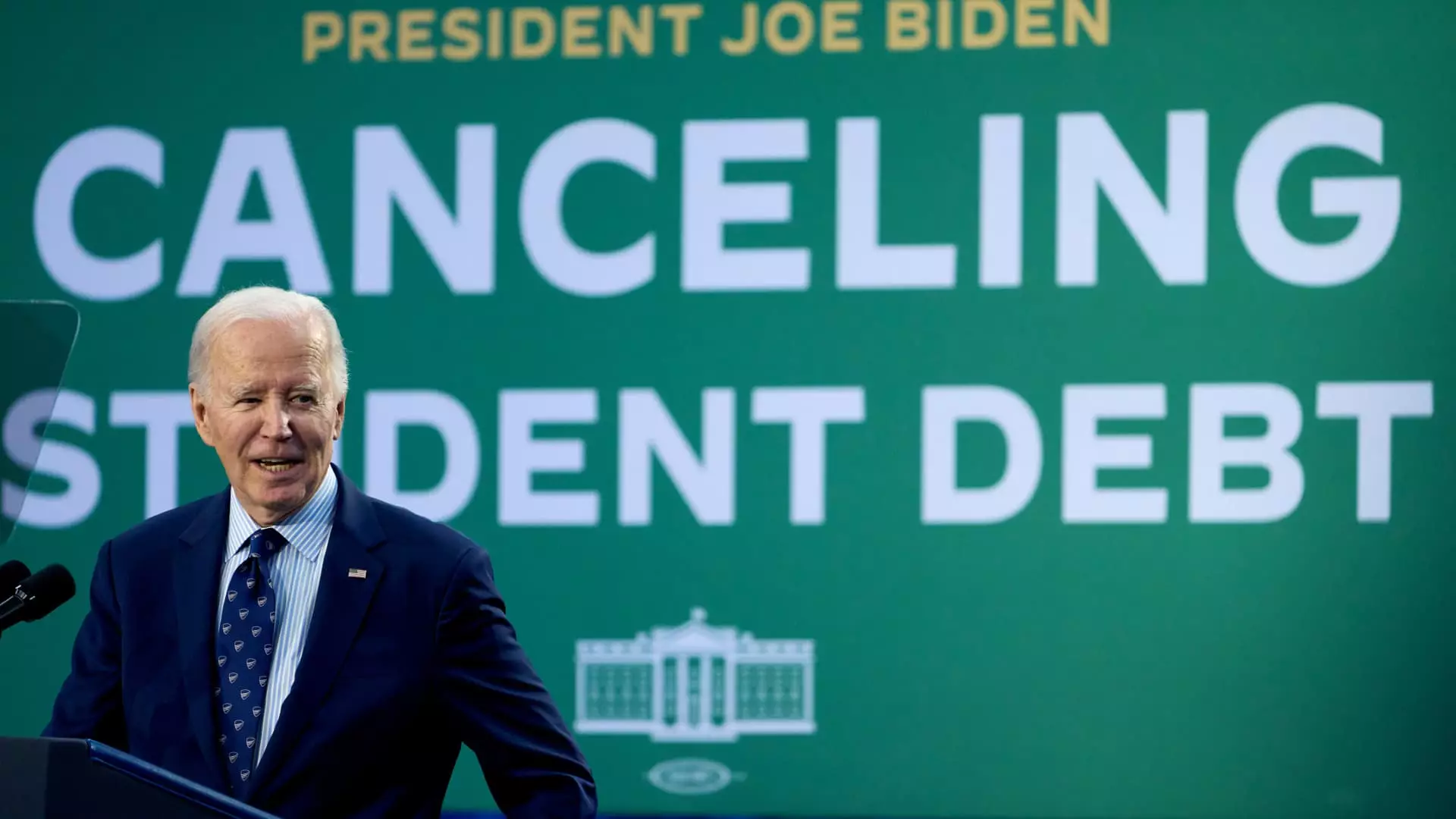In what has been touted as a significant milestone in higher education reform, the Biden administration recently announced a final wave of student loan forgiveness, discharging over $600 million for thousands of borrowers. This sweeping action, impacting approximately 8,650 individuals, signifies a concerted effort to address long-standing injustices within the student loan system, particularly for those affected by the complicated and often confusing Income-Based Repayment (IBR) plans and the malpractices of for-profit educational institutions like DeVry University.
The debt relief predominantly targets borrowers under the Income-Based Repayment plan as well as former students of DeVry University, which has faced scrutiny for misleading students about its job placement rates. The decision to forgive these loans underscores an increasing recognition of the need for accountability in the education sector, particularly from for-profit institutions that have not only failed to deliver on their promises but often left graduates with crippling debt burdens.
Notably, the Department of Education’s resolution for DeVry students is a continuation of efforts initiated in February 2022, where it was revealed that the university made substantial misrepresentations regarding its outcomes. This form of institutional negligence highlights systemic issues that call for comprehensive policies to protect students from predatory practices. A critical eye is needed not only on devious practices but also on the larger frameworks that allow such frameworks to exist.
Under President Biden’s administration, nearly 5.3 million borrowers have benefitted from a total debt forgiveness amounting to $188.8 billion. This achievement places him ahead of his predecessors in tackling student loan debt, a growing crisis that has burdened millions of Americans. Yet, the recent rounds of forgiveness also serve as a bittersweet remembrance of the school of thought that believes more could have been done, particularly in light of the Supreme Court’s recent obstruction of the administration’s broader student debt relief plan.
U.S. Secretary of Education Miguel Cardona articulated a heartfelt commitment to rectify a “broken student loan system,” emphasizing a shift toward empowering borrowers. This reflects an administration willing to confront the status quo and work towards an inclusive educational environment where student loan burdens are alleviated, albeit amidst the challenges posed by legislative and judicial pushback.
In addition to the debt forgiveness, the announcement included a significant change concerning the accuracy of payment counts for those in income-driven repayment plans. This reform is crucial, as many borrowers have reported inconsistencies in their loan servicer records, which has impeded their ability to track progress towards loan forgiveness timelines. By rectifying these discrepancies, the Biden administration has made strides toward ensuring accountability for borrowers navigating a labyrinthine student loan system.
Through establishing accurate tracking systems, the Education Department is facilitating a pathway for borrowers to have clarity on their repayment terms, thus providing a sense of control and understanding that had been elusive for many. The achievement not only alleviates financial strain but also reinforces public trust in government systems designed to support education.
While the recent announcements bring hope and relief to many, the student loan crisis persists and requires continuous attention and advocacy. The Biden administration’s final round of student debt forgiveness will serve as a crucial chapter in addressing systemic failures. However, it also calls for a sustained effort to reform the broader student loan landscape to create a more equitable and transparent system that genuinely serves borrowers without the pitfalls of deception and inequity.

